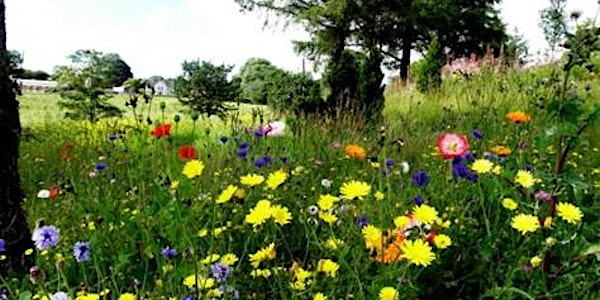
Eco-Humanities Research Group Public Lecture - June 2024
Rewilding philologies, rewilding pedagogies: Practising the languages, literatures and cultures disciplines with ecological awareness
Date and time
Location
Online
About this event
- 1 hour 15 minutes
Thursday 6th June 2024: 4.00-5.15pm (Ireland Standard Time (IST/DST))
Caitriona Ni Dhuill (University of Salzburg), Hanna Bingel-Jones (University College Cork) and Tina-Karen Pusse (University of Galway)
Rewilding philologies, rewilding pedagogies:
Practising the languages, literatures and cultures disciplines with ecological awareness
What sense does it make to speak of ‘rewilding’ disciplines that were never wild to begin with?
This paper explores the implications of ecological crisis for the philologies -- the classical and modern languages, literatures and cultures disciplines. We ask:
- What spaces can be found within the study of languages, literatures and cultures today to reflect on, resist and begin to remake disciplinary, professional and pedagogical practice in light of the multiple socio-ecological predicaments of our time?
- What distinctive perspectives do the philologies bring to the urgent task of undoing ecocidal cultural and political-economic commitments to infinite ‘growth’, runaway consumption and habitat destruction (including the destruction of human habitats through monocultural models of development)?
- How do the perspectives and resources of the philologies help to foster ecological awareness and eco-centric orientation in students and scholars alike?
In their current professionalised form, the philologies, like most academic disciplines, can be understood as products of the industrial age, enmeshed with fossil-fuel culture across all their modes of production, dissemination and practice (including the production of the subjectivities of their practitioners). The paper envisions the university as an unrealised site of deep-reaching societal and personal transformation towards more liveable relationships with human and non-human others within the damaged, increasingly fragile web of life, and asks what the contribution of the philologies can be to such transformation. While indebted to the by now prolific dialogue between ecocriticism, the environmental humanities and Anthropocene theory, the approaches explored in this paper seek to move beyond established paradigms of academic productivity to explore more ecologically reflexive -- perhaps 'wilder' -- modes of working, reading, thinking and teaching.
Caitríona Ní Dhúill is a Professor of Modern German Literature at the University of Salzburg. She studied German and Music at Trinity College Dublin, where she gained her PhD in 2005 with a dissertation on gender relations in modern utopian and dystopian writing. Her research interests are in modern German and European literature since 1870, literature and ecological consciousness, slowness as a mode of resistance, and screen-free practice in the humanities. She helped to found the Centre for Culture and Ecology at Durham University in 2018 and the Eco-Humanities Research Group at UCC in 2021.
Hanna Bingel-Jones’ research interest is in German literature from 19th century to the present, with a special focus on literary ecology and ecocriticism, narrative studies, GDR literature, and the relation between theology, religion and literature. She studied English and German in Giessen and Sheffield. She completed her PhD in Literary Studies at the Graduate Center for the Study of Culture at Giessen University, taking a narratological approach to representations of religious faith and transcendence in contemporary American prose fiction. She also taught internationally at the University of Volgograd (Russia), Belfast, Berlin and Leipzig, and is currently teaching literary studies and language at the UCC German Department.